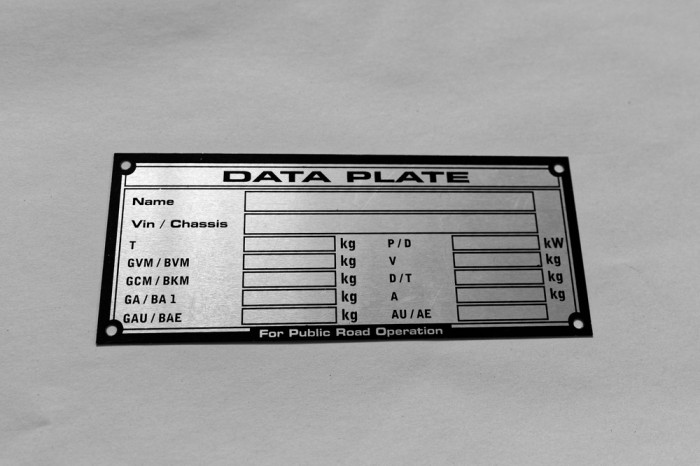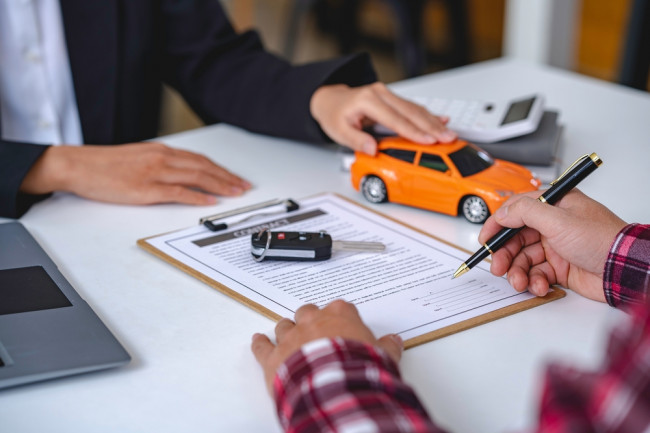
Are you ready to part ways with your trusted four-wheeled companion? Before you embark on the journey of selling your vehicle, there's a tiny detail that could make a big difference – the VIN (Vehicle Identification Number). It's not just a random string of letters and numbers; it holds the key to your vehicle's unique identity.
But do you really need to spill the digits when putting your wheels up for sale? Let's unravel the mystery behind whether providing your VIN is a crucial checkpoint in the car-selling process. Strap in for a ride through the basics of VIN and why it might be your ticket to a smoother sale.
What is a VIN?
Ever wondered what that jumble of letters and numbers on your car's dashboard really means? Well, it's called a VIN, or Vehicle Identification Number. This little code is like your car's fingerprint, holding a world of information. Let's break it down:
The VIN's composition:
Your car's VIN is a 17-character code that acts as its unique identifier. It's like a secret code that tells a story about your vehicle – where it was made, what type of car it is, and even the year it rolled off the production line.
Breakdown of each VIN section:
World Manufacturer Identifier (WMI):
This is the first three characters of the VIN. It's like the opening chapter of your car's story, revealing the country and manufacturer of origin.
Vehicle Descriptor Section (VDS):
The next five characters provide details about your car's model, engine type, and series. It's like the plot thickens in our story.
Vehicle Identifier Section (VIS):
The last nine characters from the heart of the VIN, giving your car its unique identity. It's the ending chapters that make your car distinct from all the others.
Why is the VIN important when selling a vehicle?
In the world of selling your car, the VIN (Vehicle Identification Number) is like your vehicle's special passport. It's not just a random code; it holds the key to three important things:
Unique identification of the vehicle: Think of it like your car's fingerprint. No two vehicles have the same VIN. This means that when you share it, everyone knows exactly which car you're talking about.
History and vehicle records: The VIN is like a treasure map for your car's past. It can reveal accidents, repairs, and other important details. So, when someone asks for your VIN, they're basically asking for your car's life story.
Verification of ownership: It's like the official seal on a letter. When you provide your VIN, you're saying, "Yes, this car is really mine." It's a way to make sure everything is on the up-and-up in the car-selling world.
Additionally, conducting a Rego Check ensures that the vehicle's registration is valid, providing additional peace of mind for both the seller and buyer.
Legal Aspects of Providing VIN
When it comes to sharing your vehicle's VIN (Vehicle Identification Number), there are some legal considerations you don't want to overlook. In Australia, there are specific regulations in place regarding VIN disclosure. It's not just a formality; it's backed by consumer protection laws to ensure a fair deal for both sellers and buyers.
Australian regulations on VIN disclosure:
In Australia, it's required by law to provide the VIN when selling a vehicle. This helps maintain transparency and enables potential buyers to make informed decisions.
Consumer protection laws:
VIN disclosure is not just about following rules; it's about safeguarding consumers. These laws are designed to protect buyers from hidden issues and ensure they get what they pay for.
Consequences of not providing the VIN:
Failing to provide the VIN can have consequences. It may lead to legal troubles and can create suspicion among potential buyers, impacting the overall success of your vehicle sale.
Benefits of Providing VIN
Unlocking the benefits of sharing your VIN when selling your car goes beyond just passing along a string of numbers. It's like giving your potential buyer a sneak peek under the hood before they even pop it. Here's why:
Transparency for the buyer:
Letting your buyer in on your car's VIN is like handing over a little owner's manual. It shows them the ins and outs of your vehicle, from its birthplace to its features. It's an open-book policy that keeps everything crystal clear.
Building trust in the transaction:
Imagine this as the virtual handshake in the car-selling world. Sharing your VIN screams, "I've got nothing to hide!" It's a trust-building move that reassures your buyer – making the whole deal a lot more comfortable.
Facilitating smoother transactions:
Smooth sailing is the goal, right? Providing your VIN is like oiling the wheels of your transaction. It helps things move seamlessly, avoiding unnecessary bumps along the road. The more information your buyer has, the smoother the ride for both of you.
Risks of Not Providing VIN
When it comes to selling your car, keeping your VIN (Vehicle Identification Number) under wraps might seem like a shortcut, but it's not without its risks. By withholding this vital information, you're paving the way for potential hiccups in your selling journey.
Suspicion and reluctance from potential buyers:
Buyers might raise an eyebrow if you're not willing to share your VIN. It's like a missing puzzle piece that could make them hesitate or question the legitimacy of the deal.
Potential legal implications:
Not providing the VIN might land you in hot water legally. Laws require transparency in a sale, and dodging this crucial detail might lead to unforeseen consequences.
Difficulty in proving ownership:
When the VIN is missing, proving you're the rightful owner becomes a tricky task. This could result in delays and complications, making the whole selling process more cumbersome than it needs to be.
How to Provide VIN Safely
When it comes to sharing your VIN (Vehicle Identification Number), a little caution can go a long way in ensuring a safe and smooth selling experience. Here are some simple steps to provide your VIN safely:
Methods for sharing VIN:
When sharing your VIN, opt for secure and direct communication methods. Consider sharing it in person or through private messaging rather than public forums.
Buyer privacy and security:
Prioritise the privacy and security of the buyer. Avoid sharing the VIN openly or with unknown individuals. Confirm the buyer's identity before providing such crucial information.
Online platforms and VIN safety measures:
If using online platforms for selling, be aware of the platform's safety features. Choose reputable websites that prioritise user security, and use secure channels within these platforms for VIN sharing.
By following these straightforward steps, you can navigate the process of sharing your VIN with confidence and minimise the risks associated with providing such sensitive information.
FAQs
Q1. What does VIN stand for?
VIN stands for Vehicle Identification Number. It's like your car's fingerprint, unique to each vehicle.
Q2. Why is my VIN important when selling my car?
Your VIN is your car's ID. It helps buyers check the car's history, ensuring a smooth and trustworthy transaction.
Q3. Is it mandatory to share my VIN when selling my vehicle?
While not a must, sharing your VIN builds trust. It gives buyers confidence in the car's authenticity and history.
Q4. How can I find my VIN?
Check the dashboard near the windshield, driver's side. You can also find it in the driver's door jamb or your car's registration and insurance documents.
Q5. Can sharing my VIN be risky?
Not really. It's like telling someone your car's name, not its secrets. Just avoid sharing it on unsecured platforms.
Q6. What if I don't know my car's history?
No worries. Be honest with buyers. They can run checks, and honesty always sells.
Q7. Does VIN reveal personal information?
No, it's all about the car. It won't spill your personal details.
Q8. Can I sell without a VIN?
You can, but it's smoother with a VIN. Buyers might hesitate without it.
Conclusion
In conclusion, providing your VIN when selling your vehicle in Australia is not just a legal requirement; it's a key element in building trust and ensuring a smooth transaction. The VIN serves as a unique identifier, offering transparency to potential buyers and safeguarding both parties throughout the sale process. Embracing this transparency fosters a safer and more reliable marketplace for used vehicles in Australia.












